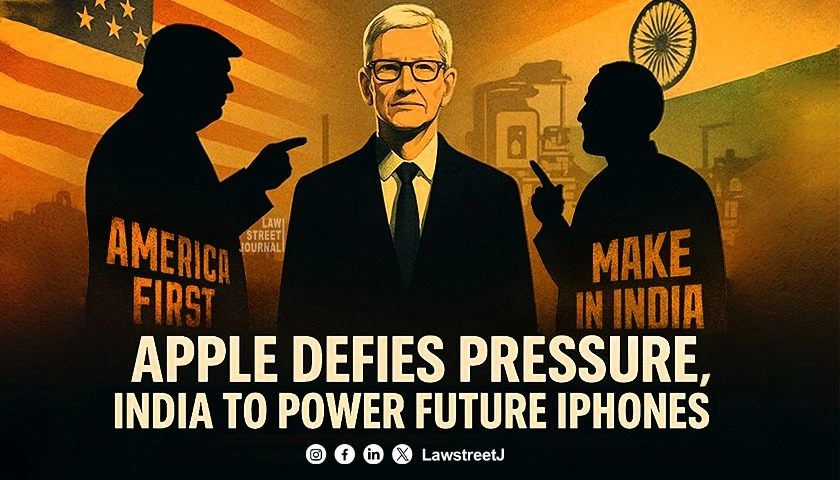New Delhi: In a bold assertion of economic sovereignty and strategic alignment, Apple Inc. has reaffirmed its unwavering commitment to India as a core manufacturing hub—directly resisting public pressure from former U.S. President Donald Trump to curtail expansion in the country.
On May 15, 2025, Trump, addressing a press event in Qatar, made a blunt appeal to Apple CEO Tim Cook: “Don’t expand in India. Make iPhones in America.” Citing India’s high tariffs and advocating “America First” economics, Trump expressed dissatisfaction with Apple’s deepening shift to offshore production, especially in the post-pandemic supply chain realignment era.
Yet, Apple, in a move that speaks louder than politics, has assured the Indian government that its investment roadmap remains unchanged. The Cupertino-based tech giant is not just continuing—it’s doubling down. By 2026, Apple aims to manufacture the majority of iPhones bound for the U.S. market right from Indian soil.
Why It Matters Beyond Tech
What makes this move particularly significant is not just the $22 billion worth of iPhones already assembled in India this fiscal year—but the implicit statement it makes about India’s rising credibility in global supply chains. For a nation whose manufacturing policies were once brushed off as bureaucratic and slow-moving, India is now at the core of Apple’s global production chessboard.
Manufacturing operations through Foxconn, Tata Electronics, and Pegatron are rapidly expanding in Tamil Nadu and Karnataka. India is no longer just an “alternative to China”; it is being carved into the future blueprint of global electronics manufacturing—on its own merit.
Legal Sovereignty and Trade Autonomy
From a legal-jurisdictional standpoint, Apple’s stance serves as an important endorsement of India’s commercial stability and policy continuity under the Make in India umbrella. Despite pressure from a former U.S. President, the company’s decision shows confidence in India’s contractual, regulatory, and labor environments—three pillars often scrutinized in global manufacturing decisions.
Moreover, this public reassurance to the Modi government comes at a politically sensitive time, as India navigates global trade dynamics with a focus on self-reliance (Atmanirbhar Bharat) without compromising on foreign direct investment.
A Legal-Lens Perspective for India
For India’s legal and policy ecosystem, this is a rare instance where geopolitics, trade law, and corporate decision-making intersect visibly. Questions around trade retaliation, WTO compliance, and foreign political interference in private contracts are likely to become more pronounced as similar global pressures mount.
While Donald Trump’s call may be symbolic, it brings to surface the broader conversation around corporate autonomy versus nationalist economic mandates. Apple’s stance here serves as an example of a company choosing operational efficiency over political appeasement.
Final Word
In resisting political pressure from across the globe, Apple has shown where it stands—not just in terms of business, but in a larger contest of global manufacturing narratives. And India, with its regulatory reforms and rising infrastructure readiness, appears to have passed a major litmus test.
As international debates continue over reshoring versus offshoring, Apple’s India strategy proves that smart legal ecosystems, policy predictability, and sovereign stability still matter more than political soundbites.











